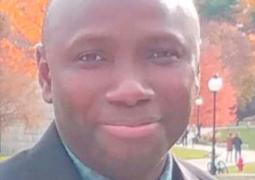This is a pared-down form of oppression, persecution and attacks from which the Prophet (PBUH) and Muslims Suffered at the hands of the oppressive polytheists who claimed to be the people of Allah and the inhabitants of the Meccan Sanctuary.
These deteriorating and dreadful conditions required a strict and serious attitude adopted by the Prophet (PBUH) to rescue Muslims and alleviate their agonies as much as he possible could. Therefore, the Prophet (PBUH) took two wise steps that had good effects no the progress of the calling and the achievement of his goals:
1-The Prophet (PBUH) chose the House of Al-Arqam Ibn Abul-Arqam Al-Makhzumy as a center for the calling and preaching.
2-He commanded Muslims to immigrate to Abyssinia (present day Ethiopia).
The House of Al-Arqam:
This house was located near the mountain of As-Safa and was hidden from the sight of the wrongful polytheists and their assemblies. The Prophet (PBUH) chose it for certain reasons: to meet Muslims secretly therein; to recite the Quran to them; to preach them and teach them their acts of worship and religious rituals; Muslims could receive what Allah revealed to His Prophet in security and peace; the Prophet received new Muslims who professed their conversion to Islam before him. Undoubtedly, if the Prophet (PBUH) met Muslims openly, polytheists would try very severely and toughly to prevent him from preaching them. Moreover, this might lead to bloody fight and direct clashes between the two parties. But this occurred as well. Ibn Ishaq mentioned that the Prophet’s followers were meeting at the mountain passes and wadis to perform prayer secretly. When a group of polytheists saw them, they abused and fought them. Once Sa’ad Ibn Abu Waqqas struck a man of them and caused his blood to flow.
It is known that if clashes recurred and took long, they would lead to the destruction and elimination of Muslims. So it was wise to depend upon the principle of secrecy and concealment. Although the majority of Muslims used to conceal their conversion to Islam and perform their religious rituals secretly, the Prophet (PBUH) proclaimed his calling and offered his acts of worship before polytheists. But he was meeting Muslims secretly for their benefit and it was in best interest of Islam too.
Muslims’ first immigration to Abyssinia:
Attacks on Muslims and aggressive acts committed against them began in the mid or later months of the fourth year of Prophethood. They were slight and weak at first. Then they began to intensify and increase day after day till they were seriously aggravated in the mid-fifty year. Muslims, due to their continuous sufferings, found out that living in Mecca was so difficult and troublesome. So they began to think about a way that might deliver them from the grievous torment they suffered. In these circumstances the chapter of Az-Zumar was revealed to refer to the procedure of immigration and declare that Allah’s earth is vast and wide. Allah says:
For those who do good in this world is good, and the earth of Allah is spacious. Indeed, the patient will be given their reward without account [i.ie, limit]. (Az-Zumar: 10)
The Prophet (PBUH) knew that Ashama the Abyssinian was a just king, so he ordered Muslims to immigrate to Abyssinia to escape with their religion. In Rajab, the fourth year of Prophethood, the first group of Muslims set out for Abyssinia. It numbered twelve men and four women, at the forefront of whom were ‘Uthman Ibn ‘Affan and his wife Ruqayya, the Prophet’s daughter. The Prophet (PBUH) said about them: “They were the first house to immigrate in the cause of Allah after Abraham and Lott.”
They infiltrated by night so that Quraish would not discover their escape. They set out towards the Red Sea to the right of the port of Shu’aybah. There Allah willed them to embark two commercial ships that were about to sail to Abyssinia. Meantime, Quraish knew of their escape. So they set off track them. But before they arrived at the seacoast, Muslims went away and were on board the ships safe and sound. Afterwards, Muslims reached Abyssinia and lived there in peace and security.
Polytheists prostrate themselves with Muslims and immigrates return
In Ramadan of the same year, the Prophet (PBUH) went to the Haram (the Meccan Sanctuary) where there was a rally Quraishite notables and leaders. The Prophet (PBUH) gave a sermon to them and suddenly recited the chapter of An-Najm. It is worth mentioning that such unbelievers did not listen to the Quran before because they would warm one another not to listen to it as in the verse read:
And those who disbelieve say “Do not listen to this Quran and speak noisily, during [the recitation of] it that perhaps you will overcome. (Fussilat: 26)
As soon as the Prophet (PBUH) recited to them the chapter of An-Najm unexpectedly, they were captivated by charming divine words and were all ears. Their feelings melted into the spellbinding air of and oppinionatedness. So when the Prophet (PBUH) came to the last verses of the same chapter, each one of the polytheists went into a strange mood and prorated himself at reciting the verse:
So prostrate to Allah and worship [Him]. (An-Najm: 62)
None could contain himself against the grandeur and splendor of truth that drove away obstinacy in the souls of deriders and supercilious polytheists.
What they tried hard to eliminate and hinder occurred abruptly and shook their hearts very impressively. But very rapidly the news circulated everywhere and blame pursued them. To justify their act the polytheists alleged that the Prophet (PBUH) spoke well of their idols and then said their recurrently transmitted statement: “These are the highest cranes and their intercession are surely hoped for.” To apologize for their spontaneous prostration they spread such a blatant lie. This was not strange of people who were accustomed to lying and slandering.
The news reached Muslims who immigrated to Abyssinia as well, but in an entirely different way. It came to their knowledge that Quraish embraced Islam, the matter which encourages them to return to Mecca in Shawwal of the same year. But before reaching Mecca, they knew the truth. So some of them returned to Abyssinia while others processed forth and entered Mecca either concealing themselves or under the protection of some fair Quraishites.
Again Quraish resorted rising torture and persecution against Muslims more mercilessly and unprecedentedly. Also the Muslims clans attacked and mistreated them. What was funny was that Quraish resented the good treatment Muslims received from Negus, the king of Abyssinia. For all these reason the Prophet (PBUH) found it inevitable to consult with his followers about immigrating to Abyssinia for the second time.
Second immigration to Abyssinia:
Muslims geared themselves up for this large-scale immigration. But this time was more difficult them the first one as Quraish was awake and decided to thwart it. Fortunately, Allah facilitated their journey and rapidly they set out and reached Negus before Quraish caught them. This time about eighty three men and nine women immigrated….<<<<<<
To be continued



